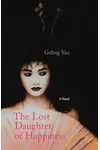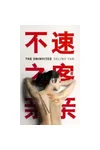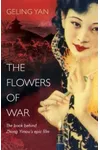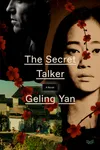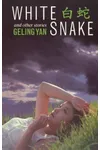Picture a Chinese-American storyteller who danced through war zones and wove tales that became cinematic masterpieces—meet Geling Yan! Born in Shanghai in 1958, Yan’s life is a vibrant tapestry of art, resilience, and cross-cultural storytelling. Her novels, like The Flowers of War and The Banquet Bug, blend raw human emotion with sharp social commentary, earning her a global following and film adaptations by directors like Zhang Yimou.
From her early days as a dancer to her fearless critiques of censorship, Yan’s journey is as gripping as her stories. Let’s dive into the world of this literary powerhouse whose pen bridges cultures and exposes hidden truths.
The Making of Geling Yan
Born into a family of artists in Shanghai, Geling Yan’s creative spark ignited early. At 12, she joined the People’s Liberation Army as a dancer, performing in Tibet during the Cultural Revolution. Her teens were spent in military boots, not ballet slippers, and she later served as a journalist during the Sino-Vietnamese War, rising to a rank equivalent to lieutenant colonel. These experiences shaped her gritty, authentic voice. After moving to the U.S. in 1989 post-Tiananmen Square, Yan earned a bachelor’s in literature from Wuhan University and an MFA in Fiction Writing from Columbia College Chicago, launching her writing career with her first novel in 1985.
Geling Yan’s Unforgettable Stories
Yan’s writing is a kaleidoscope of human struggle, love, and resilience, often set against turbulent historical backdrops. Her novel The Flowers of War (2011), adapted into a Zhang Yimou film starring Christian Bale, portrays the harrowing 1937 Nanjing Massacre through the eyes of unlikely heroes—a group of schoolgirls and courtesans. The Banquet Bug (2006), written in English, is a satirical gem about a worker mistaken for a journalist, exposing corruption with biting humor. The Lost Daughter of Happiness (2001) explores forbidden love in post-Gold Rush San Francisco, blending myth and history. Little Aunt Crane (2008) delves into survival and family bonds during Mao’s rule, showcasing Yan’s knack for complex, unforgettable characters.
Her style is sensuous and cinematic, immersing readers in worlds where beauty and brutality coexist. Yan writes in both Chinese and English, her prose weaving cultural nuances with universal themes. Her stories often spotlight women navigating oppressive systems, reflecting her own defiance of censorship—she’s faced bans in China for criticizing government actions, like the COVID-19 response.
Why Geling Yan Matters
Geling Yan’s impact transcends borders. Her works, translated into 21 languages, offer a window into Chinese history and diaspora experiences, resonating with readers worldwide. Her film adaptations, from Xiu Xiu: The Sent-Down Girl to Youth, have brought Chinese narratives to global screens, earning critical acclaim. Yan’s courage in tackling taboo topics, like human trafficking and cultural repression, makes her a vital voice in contemporary literature. Living in Berlin, she continues to write, undeterred by censorship, inspiring writers to question the status quo.
Her legacy lies in her ability to humanize history’s darkest moments, blending empathy with unflinching honesty. Yan doesn’t just tell stories—she challenges us to see the world anew.
- Born: November 16, 1958, Shanghai, China
- Key Works: The Flowers of War, The Banquet Bug, The Lost Daughter of Happiness, Little Aunt Crane
- Awards: Over 30 literary and film awards
- Notable: Member of the Academy of Motion Picture Arts and Sciences
Ready to explore Geling Yan’s captivating world? Grab The Flowers of War and lose yourself in her vivid, heartfelt storytelling!
